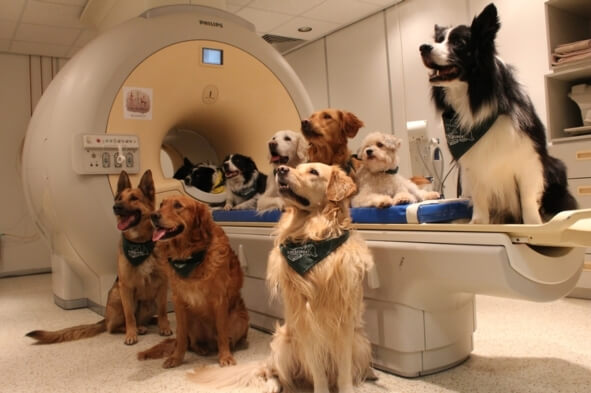- Get link
- X
- Other Apps

Sit! Stand! Good boy. Many of us say this to our best friends (among animals). New research shows that dogs can actually understand at least part of what we say - and especially pay attention to how we say it. The work, published in the journal Science this week, perhaps proves that dog lovers can not be wrong: their favorite pets can process the language in more subtle nuances than has been considered for a long time.
“We think that words are a unique human identity, but dogs can actually understand the meaning and intonation of words - and they do it almost like us,” said lead researcher Atilla Andix, a neuroscientist at Eötvös Loránd University in Budapest.
For a long time, scientists believed that the ability of people to form words - the basic building blocks of the language - appeared as a distinctive brain mechanism for maintaining communication with other people. Words are arbitrary sounds, says Andix, and people give them meaning. Other animals do not have such abilities. But even if dogs do not speak words, they seem to understand many of them, says the scientist. Dogs sit down, bring, submit a paw and lay down in response to the requests of their companions among people every day.

To check which verbal cues the dogs actually recognize, Andix and his team took 13 dogs of various breeds, from collie to golden retrievers. They then taught the dogs to lie still inside the fMRI brain scanner for seven minutes and included the voice recording of the dog trainer. While the dogs listened, scientists measured the brain activity of animals.
Scientists tested various combinations of words and intonations. For example, one entry could include praise like “Well done!”, Which was pronounced in elevated, enthusiastic tones. To another, the coach spoke these words with neutral intonation or pronounced gibberish, consisting only of the official parts of the “if” and “however” type of speech.
Researchers say the test results showed that dogs, like people, use different areas of the brain to process different parts of speech. They use the left hemisphere to parse the meaning of words, and the right to analyze intonation. The dogs in the experiment also compared two types of information together - when positive words were matched with positive intonation, the dopamine reward center in the dog's brain was activated. When positive words were chosen with neutral intonation, the reward center was less active. In response to the gibberish, the center did not react at all. "Dogs are very smart," says Andix. "Encouraging them with the right intonation can work as well as another reward, like eating or patting on the back."

These results are based on previous studies that showed that dogs can process non-verbal signals, such as voice intonation, says Victoria Ratcliffe, an animal behavior researcher at the University of Sussex, who did not participate in the study. In her own research, Ratcliffe found that dogs can distinguish between male and female voices and even understand the intonation of a sentence spoken in a foreign language. “This study shows that dogs understand much more information than we thought,” she says.
Although we still do not know for sure what the dog’s brain interprets when it hears “Well done!”, The results show that the words have a peculiar idea and meaning for them. Perhaps other animals also use these areas of the brain to process the tongue. In terms of evolution, this process can go far beyond the primates and lead to a common ancestor for all mammals.
The article is based on materials .
- Get link
- X
- Other Apps
Comments
Post a Comment